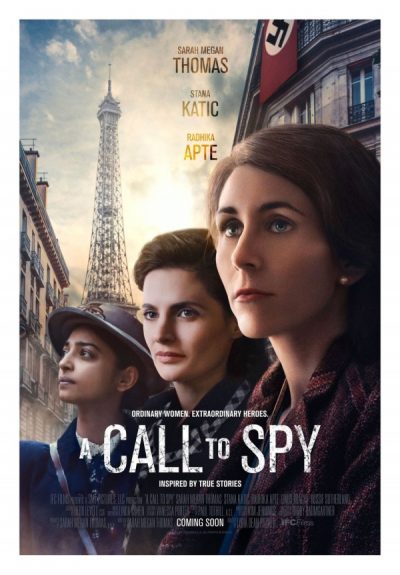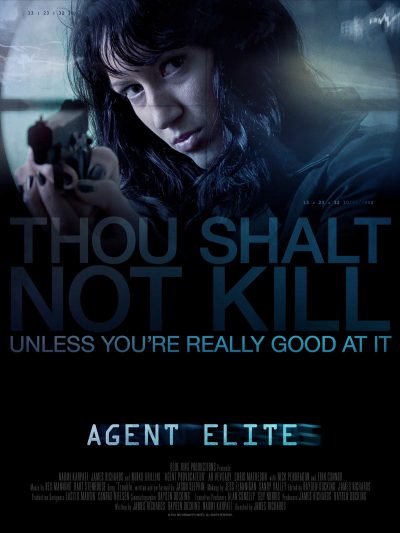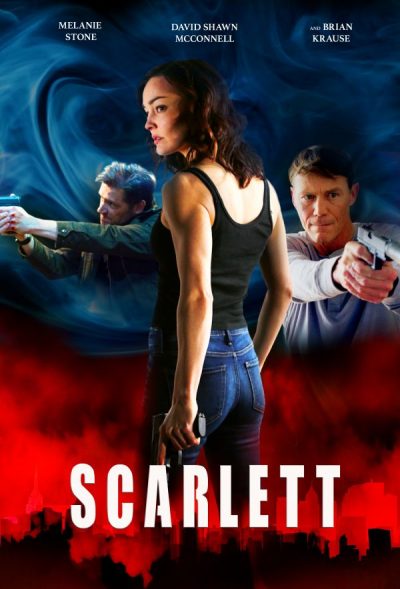★
“Save yourself!”
 I have so many questions. Not the least of which would be, how the hell is this ranked a 7.3 on the IMDb? I do note a sharp division among the sexes: male voters gave it a 3.3, while women an 8,3. What can I say? I now know the meaning of the phrase, “Bitches be crazy.” It did, however, cause me to consider my opinion on one topic. There is a school of thought which says that films that intentionally try to be bad, cannot succeed. In the past, I’ve tended to disagree: the Sharknado franchise, for example, certainly has its moments. However, this is a good counter-argument; it’s not just trying to be bad, it strains towards its goal like a constipated elephant – and with much the same end result.
I have so many questions. Not the least of which would be, how the hell is this ranked a 7.3 on the IMDb? I do note a sharp division among the sexes: male voters gave it a 3.3, while women an 8,3. What can I say? I now know the meaning of the phrase, “Bitches be crazy.” It did, however, cause me to consider my opinion on one topic. There is a school of thought which says that films that intentionally try to be bad, cannot succeed. In the past, I’ve tended to disagree: the Sharknado franchise, for example, certainly has its moments. However, this is a good counter-argument; it’s not just trying to be bad, it strains towards its goal like a constipated elephant – and with much the same end result.
The problem here is, the makers seem to think that to make a parody, you simply have to be worse that what you’re parodying, and that’s where their invention stops. “Look at how shitty we are! Isn’t that funny?” No. No, it’s not. The target here appears mostly to be sixties spy-films, with three heroines (Pasch, Bianchini and Nourney) trying to stop – or at least, delay – World War III, through methods that are almost entirely unclear. Yet I’m really not sure tismakers have ever seen an example of what they’re supposed to be parodying. They possibly just suck at film-making, though I’m sure they and their pals had a fine time globe-trotting to make this.
I’m not sure which are the worst elements. A smugly self-indulgent script which is simply too damn meta for its own good. Line delivery from the three leads that could be improved by replacing them with a text-to-speech program. Or the cringeworthy musical numbers which seems to have escaped from open mic night at your local college coffee house. The makers appear to have a group called Bright Blue Gorilla, whose songs are about as terrible as you would imagine a group with that name to be. Actually, my mistake. It’s the kung-fu. Definitely the kung-fu: feeble wet-noodle limb-waving, which makes Honey West look like like Michelle Yeoh’s greatest hits. And they don’t even have an ocelot here.
My brain shut down after 20 minutes and I had to physically step away. When I resumed, the rest was little improvement though I will say, the use of one actor to play triplets was surprisingly well-done. If only the rest of the film had remotely approached that standard. I gave serious consideration to simply bailing, and pretending the whole thing did not exist. But if the existence of this review manages to save one person from making the same mistake as I did, then my sacrifice will be worthwhile. So, I persisted, right through the eight-minute credit crawl, including what seems like a picture of every single person involved in the production. Further proof, as if any were needed, confirming the largely vanity nature of this project.
Dir: Michael Glover
Star: Christa Pasch, Roberta Bianchini, Nadine Nourney. Dominic Anglim








 Matti Baker has always been… unusual. She was adopted as a child, and subsequently discovered her mother was an FBI special agent who died while giving birth to Matti on a mission. She breezed through high school, and after graduation, began training to become a contractor for a private agency, carrying out “special” tasks, under the (rather vague, and entirely deniable) auspices of the US government. On successful completion of the four-year course, Matti begins missions, such as neutralizing terrorists. She also meets Tom, who becomes her husband and they have three kids – triplets born on September 11, 2001. But, in 2015, the tables are turned, and Matti becomes the target for some highly-motivated and thoroughly unpleasant enemies, who are seeking vials in her possession, and won’t take “No” for an answer.
Matti Baker has always been… unusual. She was adopted as a child, and subsequently discovered her mother was an FBI special agent who died while giving birth to Matti on a mission. She breezed through high school, and after graduation, began training to become a contractor for a private agency, carrying out “special” tasks, under the (rather vague, and entirely deniable) auspices of the US government. On successful completion of the four-year course, Matti begins missions, such as neutralizing terrorists. She also meets Tom, who becomes her husband and they have three kids – triplets born on September 11, 2001. But, in 2015, the tables are turned, and Matti becomes the target for some highly-motivated and thoroughly unpleasant enemies, who are seeking vials in her possession, and won’t take “No” for an answer. Stacey Anderson (Sturman) is an agent for the CIA. When an operation in Tunis goes bad, she is blamed, and the intelligence which was supposed to have been collected – a complete list of Russian assets – goes missing. Stacey is disavowed by the organization, and dumped out, with a new identity. Five years later, she’s a saleswoman for a PR company, and her boyfriend, Ken (Haymes) has just proposed, when Stacey’s old life comes back to haunt her. An assault on her workplace shows that someone clearly believes she knows more about the list than she admitted. She is forced on the run, with Ken, while she tries to figure out whether it’s the Russians, or a rogue faction within her former employers. Fortunately, this wasn’t entirely a surprise, and Stacey is quite well-prepared. Less expected: having to take her new fiance along with her.
Stacey Anderson (Sturman) is an agent for the CIA. When an operation in Tunis goes bad, she is blamed, and the intelligence which was supposed to have been collected – a complete list of Russian assets – goes missing. Stacey is disavowed by the organization, and dumped out, with a new identity. Five years later, she’s a saleswoman for a PR company, and her boyfriend, Ken (Haymes) has just proposed, when Stacey’s old life comes back to haunt her. An assault on her workplace shows that someone clearly believes she knows more about the list than she admitted. She is forced on the run, with Ken, while she tries to figure out whether it’s the Russians, or a rogue faction within her former employers. Fortunately, this wasn’t entirely a surprise, and Stacey is quite well-prepared. Less expected: having to take her new fiance along with her.
 Born as Maya, the heroine here adopted the name of “Jet” when she became part of a seriously black ops group, part of the Israeli intelligence service known as the Mossad. There, she and her colleagues had carried out thoroughly deniable operations against… well, supposedly Israel’s enemies, though it’s not as if she asks questions. The secrecy wasn’t limited to her work, as she carried on an unsanctioned relationship with David, the man in charge of the group. But eventually, it all became too much: with David’s assistance, Jet faked her own death on a mission and vanished off the grid, re-appearing as “Carla” in Trinidad, where she enjoyed a quiet life for several years. That came to a sudden end when assassins make an attempt to terminate her new identity. Her cover has clearly been blown. The questions are: what happened, who is responsible, and how can Maya a.k.a. Jet a.k.a. Carla restore the balance?
Born as Maya, the heroine here adopted the name of “Jet” when she became part of a seriously black ops group, part of the Israeli intelligence service known as the Mossad. There, she and her colleagues had carried out thoroughly deniable operations against… well, supposedly Israel’s enemies, though it’s not as if she asks questions. The secrecy wasn’t limited to her work, as she carried on an unsanctioned relationship with David, the man in charge of the group. But eventually, it all became too much: with David’s assistance, Jet faked her own death on a mission and vanished off the grid, re-appearing as “Carla” in Trinidad, where she enjoyed a quiet life for several years. That came to a sudden end when assassins make an attempt to terminate her new identity. Her cover has clearly been blown. The questions are: what happened, who is responsible, and how can Maya a.k.a. Jet a.k.a. Carla restore the balance?
 Eva Destruction – and, yes, that
Eva Destruction – and, yes, that